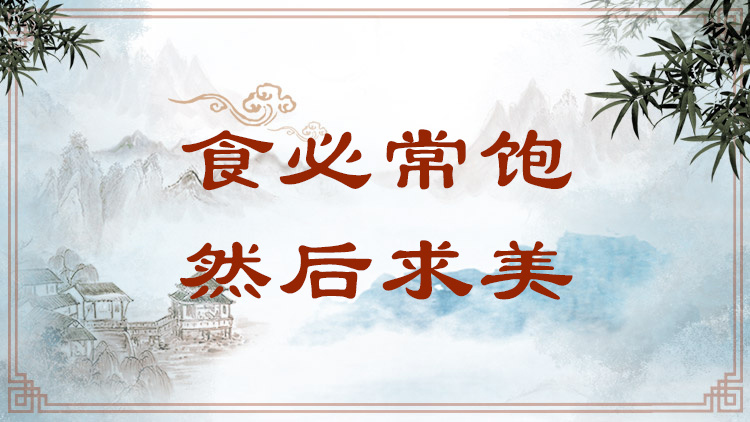Attention to Refined Taste Comes Only After the Stomach Is Sated

食物一定是先正常吃飽,然后再講求口味。墨子主張節約和實用,反對文飾,認為過多的文飾既浪費勞動力,又浪費原材料。他提出先解決溫飽,再滿足審美。墨子并不是排斥美,也不是不會欣賞美,只不過他以實用性、功利性作為衡量美的標準,認為凡是不實用的、只講究形式華麗的都不是真正的美。儒家強調文質彬彬,將形式美與內容實質同等看待;而墨子則強調先質而后文。
Humans must first of all eat to live. Taste is secondary. Mozi opposed extravagance in favor of frugality and utility. He argued that an extravagant way of life was wasteful of labor and raw materials. He prioritized eating one's fill and dressing warmly over aesthetic demands. It was not that he abhorred beauty or was unable to appreciate it. Rather, he adopted functionality and usefulness as his criteria for judging beauty, and believed that whatever was impractical or of only formal elegance had no true beauty. Whereas Confucian philosophers valued both form and content, arguing that external features and inner substance were equally important, Mozi placed substance well above form.
引例 Citation:
◎故食必常飽,然后求美;衣必常暖,然后求麗;居必常安,然后求樂。(劉向《說苑》引《墨子》)
所以食物一定是先能正常吃飽,然后再講求口味;衣服一定是先能正常穿得暖和,然后再講求漂亮;居所一定是先能正常住著安穩,然后再講求享樂。
Hence, a person must be able to eat his fill before he can shift his focus to taste. He must dress warmly before he can consider elegance. He must also have a secure dwelling before he thinks about enjoying comfort. (Mozi, as cited in Liu Xiang: Garden of Stories)
推薦:教育部 國家語委
供稿:北京外國語大學 外語教學與研究出版社
責任編輯:錢耐安





